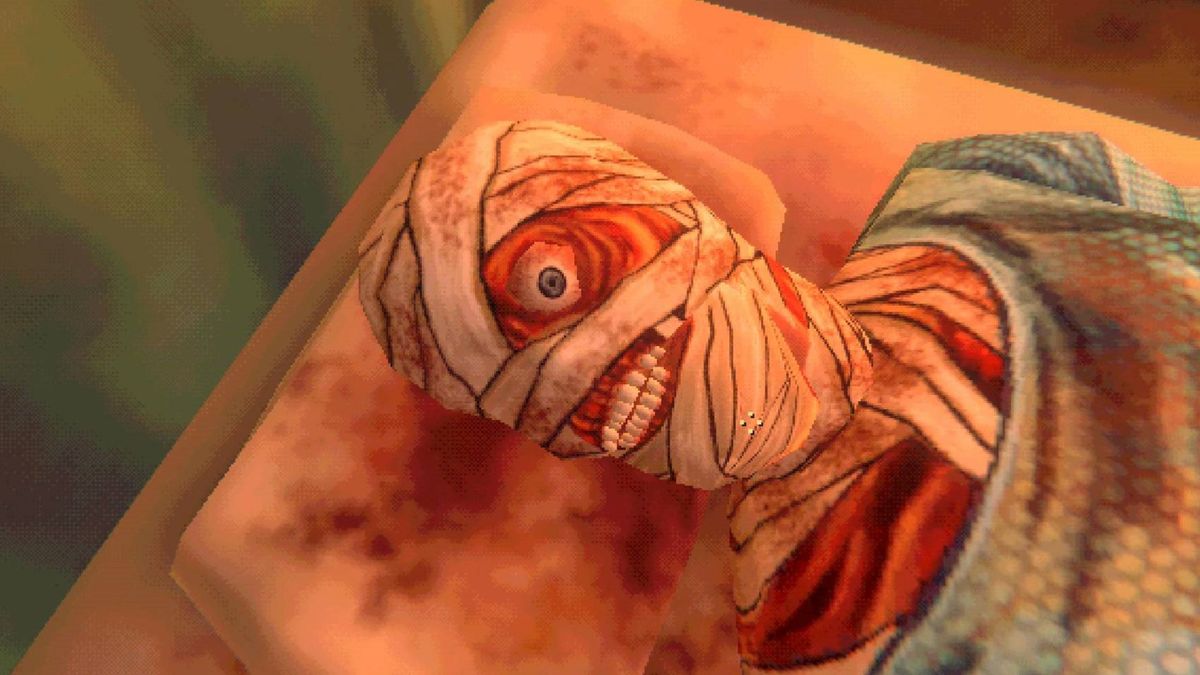Table of Contents
Martin Halldin Celebrates One Million Spotify Streams While Notching Up Critiques of Artist Compensation
Martin Halldin, the sound designer behind the indie horror game Mouthwashing, is celebrating a milestone of one million streams on Spotify. Despite this impressive feat, Halldin’s excitement comes with a mix of humor and frustration, as the reality of streaming revenues paints a stark contrast to the achievement.
The Game: A Unique Horror Experience
Released in early 2024, Mouthwashing is an indie title that presents a haunting exploration of themes surrounding death and the often-overbearing weight of corporate bureaucracy. Emerging from the February 2024 Steam Next Fest demo event, the game’s atmosphere and narrative have resonated with players looking for depth in their gaming experiences. Describing Mouthwashing as a “fascinating li’l gem of an indie horror,” Halldin’s work on the soundtrack has contributed significantly to the game’s allure, drawing a dedicated audience that recently pushed his music over the one million stream mark on Spotify.
A Comedic Take on Financial Realities
In a comical yet pointed tweet, Halldin celebrated the milestone by reflecting on the paltry compensation artist receive from Spotify. “I can buy like two hot dogs with the revenue,” he remarked, summarizing the struggle many artists face with streaming platforms. This lighthearted comment highlights the serious issue of artist compensation in the rapidly evolving music industry.
Halldin went on to clarify that, as of now, he has yet to receive any financial compensation from Spotify due to delays in the reporting process from the distribution service he uses. While estimating that he could eventually make around $4,000 from the streams—a figure comparable to a decent month’s salary—he emphasized that “all of it goes back into Wrong Organ,” his game development company. His commitment to reinvesting in his work demonstrates a dedication to creating more content in the future, despite the current financial limitations.
The Industry’s Streaming Dilemma
Halldin’s predicament is not unique. The broader conversation surrounding artist compensation has gained traction in both mainstream and indie music sectors. Platforms like Spotify, while providing vast exposure to independent artists, have often been criticized for their low payout rates. According to a report by TechCrunch, most artists receive less than a dollar per every thousand streams, leaving many wondering how to make a sustainable living from their art.
What This Means for the Indie Game Scene
The intersection of video games and music is increasingly prominent, with soundtracks enhancing the gaming experience and becoming an essential part of a game’s identity. As indie developers like Halldin struggle for fair compensation, how they balance artistry, technology, and financial viability underlines the challenges faced by many in the gaming community. This situation raises important questions about the sustainability of indie game development and artist livelihoods in a landscape dominated by a few major music streaming players.
The Future of Indie Music and Game Development
For Halldin and others in the indie scene, the journey doesn’t end with one million streams. It opens doors to critical conversations about the balance of creative expression and financial stability. As the gaming world continues to evolve, the hope is that more equitable revenue-sharing models will emerge. This change could allow artists—like Halldin—to thrive, rather than merely survive.
While Mouthwashing continues to garner attention for its unsettling narrative and captivating soundtrack, the dialogue surrounding its profitability and the treatment of artists remains vital. As technology enthusiasts and gaming professionals, we must advocate for fairer practices that uplift artists across all platforms.
Did you discover Mouthwashing through its soundtrack? Share your thoughts on the importance of fair compensation for artists in the comments, or connect with us to amplify the conversation. Whether you’re an avid gamer or a music buff, your voice can make a difference in shaping a healthier future for creative professionals.
For more insights into the intersection of technology and creative industries, check out our articles on Shorty-News and follow the latest discussions in tech culture from trusted sources like Wired and The Verge.
Q: What advice would you give to aspiring sound designers looking to break into the gaming industry?
Q: Can you tell us more about the inspiration behind the game’s soundtrack and your role in its creation?
Guest 1: Sure, as the sound designer for Mouthwashing, I was responsible for creating an atmosphere that would complement the game’s unique visual style and narrative. I wanted to convey the eerie feeling of the game’s setting through the use of haunting melodies and subtle sound effects. One of my goals was to create a soundscape that would immerse players in the game world and leave a lasting impression.
Q: How does it feel to reach one million streams on Spotify, especially considering the challenges faced by independent artists today?
Guest 2: It’s definitely an amazing achievement and I’m very proud of our work. However, as Martin mentioned in his tweet, the financial rewards are often minimal, and I think it’s important for people to understand the struggle that many indie artists go through to make a living. We put a lot of time and effort into our craft, and it’s disheartening when the returns aren’t commensurate with that investment.
Q: Given the current state of artist compensation in the music industry, what do you think needs to change to ensure fairer treatment for creatives?
Guest 1: I think transparent reporting, better royalties, and more direct-to-fan interactions are all important steps towards improving the situation. Streaming platforms need to provide clearer information on how their algorithms work and how artists can optimize their content for greater exposure. Additionally, fans have a role to play by directly supporting their favorite artists through services like Bandcamp or Patreon.
Q: What impact do you think the recent push towards interactive storytelling and immersive experiences will have on the relationship between game developers and musicians?
Guest 2: I think it presents a great opportunity for both parties to collaborate and create something truly special. Games that incorporate music well can create a deeper emotional connection with players, and music can help evoke the right feelings and moods in a game. It will be exciting to see how this relationship continues to evolve and what new opportunities arise.
Q: How do you balance your passion for creating art with the need to make a living?
Guest 1: It’s

